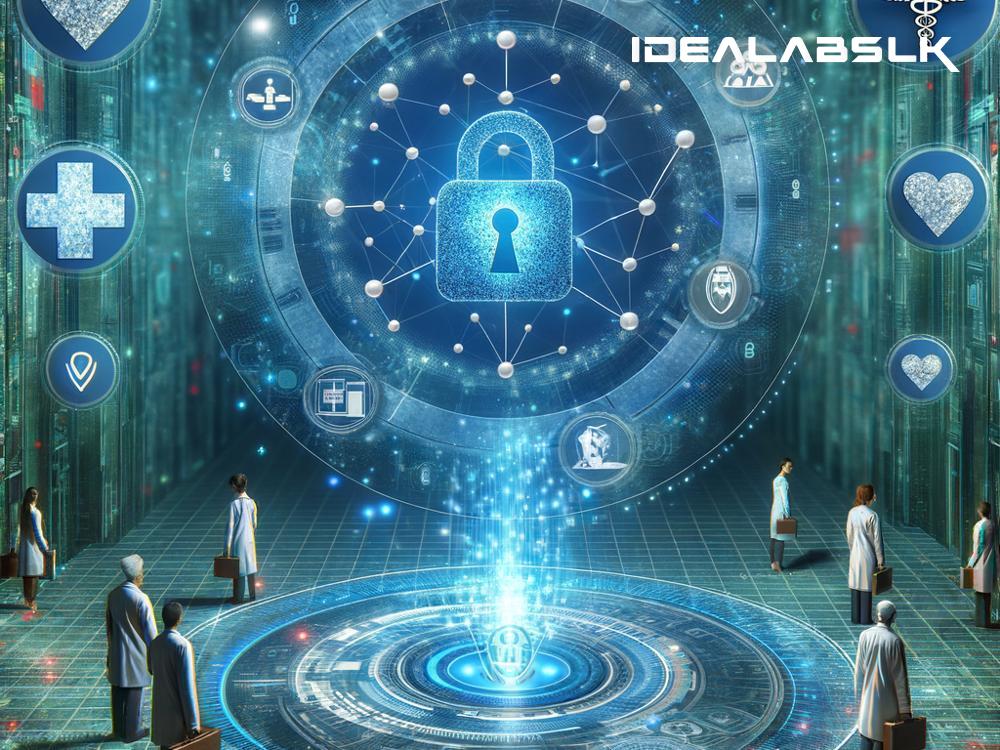Unlocking a Healthier Future: How Blockchain Can Safeguard Our Medical Secrets
In a world where our every step can be tracked, and personal details are as easy to access as a click of a button, the sanctity of our health data has never been more vulnerable. As we navigate this digital era, the looming question of how to protect our most sensitive information – health records – is more urgent than ever. Enter blockchain, a knight in digital armor, stepping onto the scene with a promise to transform how our health data is stored, shared, and secured. Let's break down how this revolutionary technology can be the key to not just improving healthcare security but also ensuring the iron-clad protection of patient privacy, all explained in the simplest way possible.
Blockchain Basics: A Quick Snapshot
Imagine blockchain as a digital ledger, but one that's shared across a network of computers, each holding a copy of this ledger. Every entry in this ledger (let's think of them as blocks) is securely linked to the previous one, forming a chain (hence, blockchain). What makes it so special is its transparency and tamper-proof nature; once a block is added, it's there for good and visible for all in the network to see. But don't worry – despite being transparent, personal information isn't just out there for the world to see. Thanks to encryption, your data remains both anonymous and secure.
A New Dawn for Health Data Security
The traditional method of storing health records often resembles a fortress: strong walls, with all the treasures locked inside. Sounds secure, right? However, a fortress only needs one breach to be compromised. Blockchain, on the other hand, uses a decentralized approach. Since copies of the blockchain are spread across multiple locations, hacking into the system is infinitely more difficult. There's no single point of failure, making our health data much safer.
Now, let's illuminate how blockchain specifically benefits health data security and patient privacy:
-
Encryption and Anonymity: Blockchain encrypts data, making it unreadable without a specific key. This means your health information is not just a book open for anyone to read. Moreover, the data is stored without directly identifying you, offering an additional layer of anonymity.
-
Permissioned Access: Imagine you have a vault, and you can control exactly who gets in, when, and what they see. That's the kind of control blockchain brings to your health data. You can grant healthcare providers access to only the parts of your health record necessary for your treatment, enhancing your privacy.
-
End-to-End Transparency: Every transaction on a blockchain, from a doctor's note to a new prescription, is recorded. This transparency ensures that you can see who accessed your data, when, and for what purpose, bringing a new level of trust to the healthcare system.
-
Immutability of Records: Once something is on the blockchain, it's set in stone (or, more accurately, in a block). This characteristic ensures that your health data cannot be altered, lost, or destroyed by any foul play, giving you peace of mind that your medical history is intact and unchanged.
-
Efficiency and Speed: Blockchain can streamline the sharing of medical records among healthcare providers, reducing the risk of errors and delays in treatment. With instant access to a patient's complete medical history, doctors can make informed decisions faster, potentially saving lives.
Empowering Patients in Their Healthcare Journey
Beyond securing data, blockchain hands the control of personal health information back to where it belongs: with you, the patient. Rather than being passive participants, patients can actively manage who views their data, contributing to personalized and efficient healthcare. Through blockchain, we're not just enhancing security; we're empowering individuals in their healthcare journeys, ensuring that they're partners in the process, not just subjects of it.
The Road Ahead
As we venture into this blockchain-enabled future, it's essential to address challenges such as integrating this technology with current healthcare systems and ensuring its accessibility to all. Yet, the potential rewards—unprecedented security, enhanced privacy, and empowered patients—present a compelling case for why blockchain could be the cornerstone of a new era in healthcare.
A Healthy Future Secured
In simple terms, blockchain is set to revolutionize how health data is handled, offering a robust solution to the issues of security and privacy that plague our current system. By leveraging this technology, we can look forward to a future where our medical secrets are safely locked away, yet always within our reach, ready to be shared on our terms. In this new age of healthcare, security, and patient empowerment go hand in hand, heralding a healthier, safer future for all.

